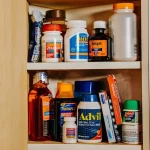The Importance of Ultra-low Temperature Freezers in the Preservation of Medicines

In the pharmaceutical industry, proper preservation of medicines is of vital importance. Ultra-low temperature lab freezers play a crucial role in this process, allowing them to be kept in optimal conditions for use.
In this article, we’ll explore the relevance of these freezers, the benefits they offer, and the technology behind them.
The relevance of ultra-low temperature freezers in the pharmaceutical industry
Medicines are sensitive products that require specific storage conditions to maintain their effectiveness and safety. Temperature is one of the most critical factors in their preservation, as extreme heat or cold can alter their chemical composition and reduce their effectiveness. Ultra-low temperature lab freezers are specially designed to keep medicines at extremely low temperatures, usually below -80 degrees Celsius. This ensures that they are properly preserved and stable for prolonged periods.
In addition, these freezers offer precise temperature control, allowing health professionals to adjust them to the specific needs of the medicines. This is especially important for those medicines that are extremely sensitive to heat or that require very low temperatures for storage.
Benefits of ultra-low temperature freezers for preserving medicines
Ultra-low temperature freezers offer a number of key benefits for preserving medicines:
1. Long-term storage: freezers allow medicines to be stored for prolonged periods without deterioration. This is especially important for those who have a long service life or are used in long-term treatments.
2. Maintenance of effectiveness: By keeping medicines at extremely low temperatures, ultra-low temperature freezers ensure that the active ingredients in them do not degrade. This ensures that they remain effective and safe for use.
3. Reduction of contamination risk: These freezers are designed with safety systems that prevent cross-contamination between the medicines stored. This is essential in order to guarantee the quality and integrity of them.
4. Space saving: ultra-low temperature freezers are designed to maximize storage space. This allows pharmaceutical facilities to store more medicines in a limited space.
The technology behind ultra-low temperature freezers in preserving medicines
Ultra-low temperature freezers utilize advanced technology to maintain medicines in optimal condition. Equipped with high-efficiency cooling systems, these freezers can achieve and sustain extremely low temperatures.
Moreover, precise temperature control systems are integrated to guarantee a constant temperature, preventing fluctuations that could compromise the quality of stored medicines. This meticulous temperature management is crucial in safeguarding the efficacy and integrity of pharmaceutical products.
Furthermore, these freezers are designed with alarm systems that promptly alert healthcare professionals to any anomalies in temperature or freezer operation. This feature facilitates swift responses, mitigating the risk of medicine loss due to technical issues and ensuring the reliability of the preservation environment.
Improving the efficiency of preserving medicines with ultra-low temperature freezers
To further improve the efficiency of preserving medicines, it is important to follow good practices in the use of ultra-low temperature freezers. Here are additional recommendations:
1. Optimal Loading Practices: Pay attention to how the medicines are loaded into the freezer. Arrange them in a way that allows for proper air circulation, preventing uneven temperature distribution. This helps ensure that all medications are uniformly exposed to the desired low temperatures.
2. Avoid Overcrowding: While it might be tempting to maximize freezer space, avoid overcrowding. Maintaining adequate space between stored items promotes efficient cooling and helps the freezer maintain the required low temperatures consistently.
3. Emergency Preparedness: Develop and implement a contingency plan for power outages or malfunctions. This may include having a backup power source, such as a generator, and establishing procedures for transferring medicines to alternative storage if necessary.
4. Training and Documentation: Ensure that personnel responsible for managing the ultra-low temperature freezer are well-trained. Document operating procedures, including loading protocols, monitoring schedules, and emergency response plans. This contributes to consistency and helps in training new staff members.
5. Temperature Alarms and Alerts: Install temperature alarms that notify relevant personnel in case the freezer temperature goes beyond the acceptable range. This early warning system allows for swift intervention to prevent potential damage to the stored medicines.
6. Regular Calibration: Periodically calibrate temperature monitoring equipment to maintain accuracy. This ensures that the temperature readings are reliable, providing a true reflection of the freezer’s internal conditions.
7. Secure Storage Environment: Ensure that the ultra-low temperature freezer is located in a secure environment with limited access. This minimizes the risk of unauthorized alterations to the temperature settings or accidental interference that could compromise the integrity of the stored medicines.
Conclusion
In summary, ultra-low temperature freezers play a pivotal role in the pharmaceutical industry by contributing to the preservation of medicines. They offer notable advantages, including long-term preservation effectiveness and a decreased risk of contamination.
Utilizing advanced technology, these freezers maintain medicines in optimal conditions for extended use. Implementing good practices in their operation can enhance the efficiency of medicine preservation. In essence, ultra-low temperature freezers serve as a crucial tool for upholding the quality and safety standards of medicines in the pharmaceutical industry.





